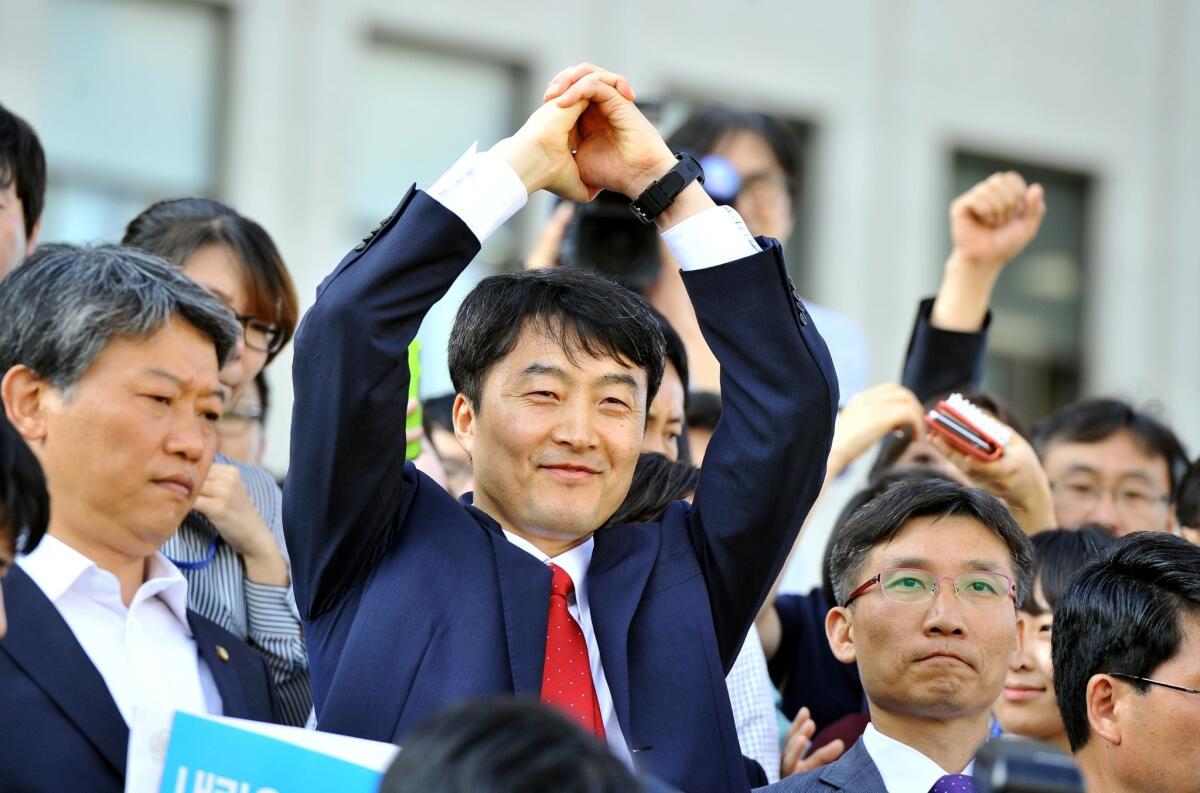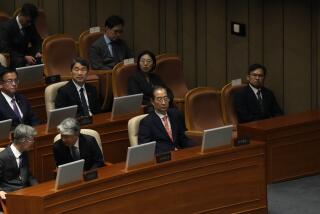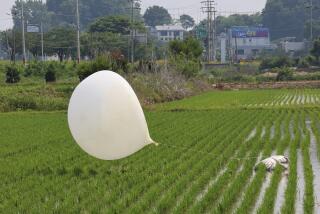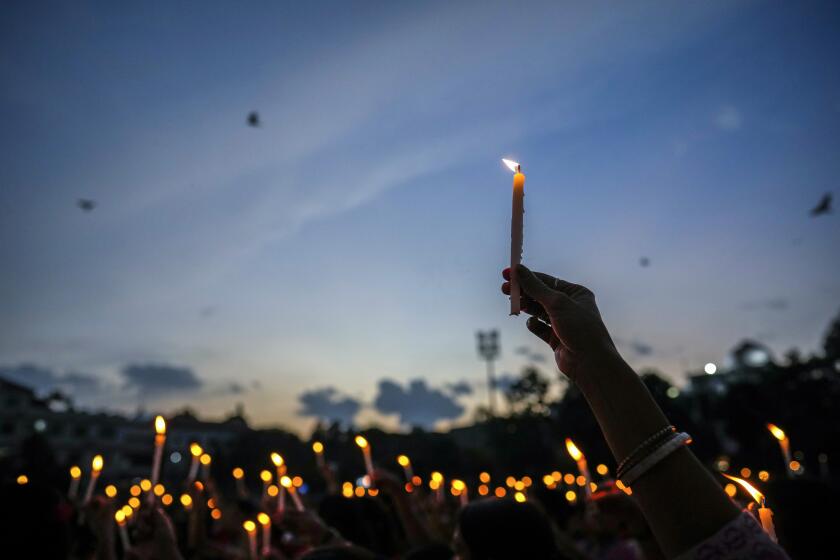South Korean lawmaker convicted of treason, supporting North Korea

SEOUL -- A left-wing South Korean lawmaker was sentenced to 12 years in prison Monday on charges of treason and praising North Korea, the first such conviction of a legislator since the South transitioned to democracy in the late 1980s.
Prosecutors had sought a 20-year term for Lee Seok-ki of the small, leftist Unified Progressive Party. He and six fellow party members were arrested last year after they held a meeting in which they allegedly discussed ways to help the North defeat the South in the event of a war between the two Koreas.
Lee and his co-defendants allegedly plotted ways to take out South Korean infrastructure, such as communications and rail facilities, should conflict break out. They were also accused of singing North Korean songs and referring to late North Korea leaders Kim Il Sung and Kim Jong Il using honorific titles -- both illegal acts in the South.
In their defense, the defendants argued that the evidence against them had been exaggerated to frame them of plotting an insurrection.
But in delivering his ruling, Judge Kim Jung-woon said, “Lee Seok-ki sought to undermine the legitimacy of the South Korean state and destroy the constitutional order for the purpose of regime change,” reported the Dong-A Ilbo newspaper. Lee’s co-defendants, who are members of his party but are not legislators, were all sentenced to between four and seven years in prison.
Speaking with reporters outside the courtroom, Kim Chil-joon, one of Lee’s lawyers, called the ruling “absurd and terrible” and said Lee’s legal team would appeal.
The South Korean branch of Amnesty International issued a statement calling the ruling “a violation of the rights to freedom of thought and expression in South Korean society.”
Reaction to the verdict was strong and swift on social media. A user named Yang Yong-seok said Monday’s ruling would go down as “a shameful event in our history.” But others were supportive, including a user by the name of Jadol who tweeted, “12 years isn’t enough for a ringleader who tried to topple the nation using violence.”
The disparate responses reflect a stubborn split in South Korean politics and society. While some argue that civil liberties need to be limited to maintain security in the face of threats from North Korea, others contend that the government uses anachronistic regulations, mainly the National Security Law or NSL, to suppress dissent.
The controversial law prohibits praising or supporting any “anti-government organization”; the law defines North Korea as one such group.
Throughout his career, Lee has often been called “pro-North Korea,” a term of debasement in South Korean politics. In 2003, he was convicted of participating in a pro-North Korea organization and sentenced to 2½ years in prison but was later freed by presidential pardon. More recently, he created controversy when he refused to sing the South Korean national anthem, saying he didn’t recognize it as the official anthem of Korea.
The charges against Lee were brought forward last summer by the National Intelligence Service (NIS), South Korea’s main spy agency. Critics alleged at the time that the agency picked that moment to charge Lee and his colleagues to distract from a crisis of its own.
At that time, news had surfaced that the NIS interfered in South Korea’s 2012 presidential elections by having its agents post thousands of comments in online message boards supporting candidate Park Geun-hye and disparaging her liberal opponent, Moon Jae-in, as a shill for North Korea. Park won the election and is currently serving as president.
North Korea has denied any link with Lee and his colleagues, but called the case brought against them a plot to “suppress progressive forces” and a “politically motivated plot to intensify fascist dictatorship and spoil the atmosphere of the inter-Korean dialogue,” North Korea’s official Korean Central News Agency said last fall.
On Thursday, for the first time since 2010, South and North Korea are scheduled to hold reunions of families divided by the Korean War, which ended in 1953. Reunions were scheduled in September of last year, before North Korea pulled the plug on them, accusing the South of “hostile acts that hurt our dignity.”
This time around, there have again been concerns that the reunions could be canceled, but North and South agreed at a meeting last Friday to go ahead with the events.
Borowiec is a special correspondent.
More to Read
Sign up for Essential California
The most important California stories and recommendations in your inbox every morning.
You may occasionally receive promotional content from the Los Angeles Times.










